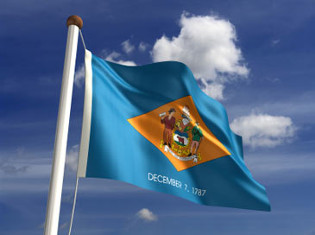
Not that it should come as any surprise, but Delaware gaming officials are monitoring the progress of H.R. 707, the Restoration of America’s Wire Act (RAWA), very closely, according to a report in the Wilmington, Delaware news outlet, the News Journal. Though Nevada and New Jersey have garnered most of the headlines when it comes to regulated intrastate online poker in the U.S., it was actually Delaware that legalized it first. Nevada has had it going for about two years, New Jersey nearly one and a half, but Delaware has had legal internet gambling for three years now.
“There are a lot of nervous lottery people,” Vernon Kirk, Delaware’s lottery director, told the News Journal.
The Dover Downs Hotel and Casino’s CEO, Ed Sutor, is not nearly as worried. While he’s keeping any eye on things, he said, “I don’t think there is enough support down in Congress. That’s taking away state’s rights.”
He also thinks RAWA would allow the three states that already have legalized online gambling to be grandfathered in and essentially just leave them alone, but as it stands now, that would not be the case. The Wire Act outlaws sports betting in the United States over communications lines (phone, internet, etc.), but had for a long time been interpreted by the U.S. Department of Justice as banning all forms of online gambling, not just sports betting. At the end of 2011, the DoJ clarified its interpretation of the Wire Act, confirming that it did, in fact, only apply to sports betting. Sheldon Adelson, the Republican ultra-donor and CEO of the Las Vegas Sands Corp., is afraid that online gambling in the U.S. would hurt his business, so he and his cronies penned RAWA. The bill’s goal is to force the Department of Justice to go back to its old, clearly incorrect interpretation of the Wire Act, thus making all internet gambling in the country illegal. There is no carve-out for states that have already legalized it on their own. Adelson wants online gambling to disappear completely (well, except for those forms of gambling with powerful lobbies, but that’s another story).
Rep. Jason Chaffetz (R – Utah) introduced RAWA in the House Judiciary Committee in February. A hearing was held on the bill in front of the House Subcommittee on Crime, Terrorism, Homeland Security, of which Chaffetz is a member, in March.
Sutor is correct in that RAWA would violate states’ rights, which is a big reason why it will have trouble passing. While Republicans have traditionally been on the wrong side of the internet gambling battle (read: anti-online gambling), many are staunch states’ rights supporters and would be reluctant to back a bill that would run contrary to their values.
The News Journal contacted Congressman John Carney (D – Del) about the matter and was told by a spokeswoman that he feels states should be able to decide on internet gambling themselves and that he would “likely oppose the Chaffetz bill if it were to come to a vote on the House floor.”
Online gambling has had little financial impact on Delaware so far, primarily because the state has a tiny player pool. The News Journal noted that internet gambling only contributed $318,000 to the state’s coffers in the fiscal year ending June 2014. Things may get better, as Delaware players can now sit at the same tables as Nevada players, thanks to the Multi-State Internet Gaming Agreement between the two states.























